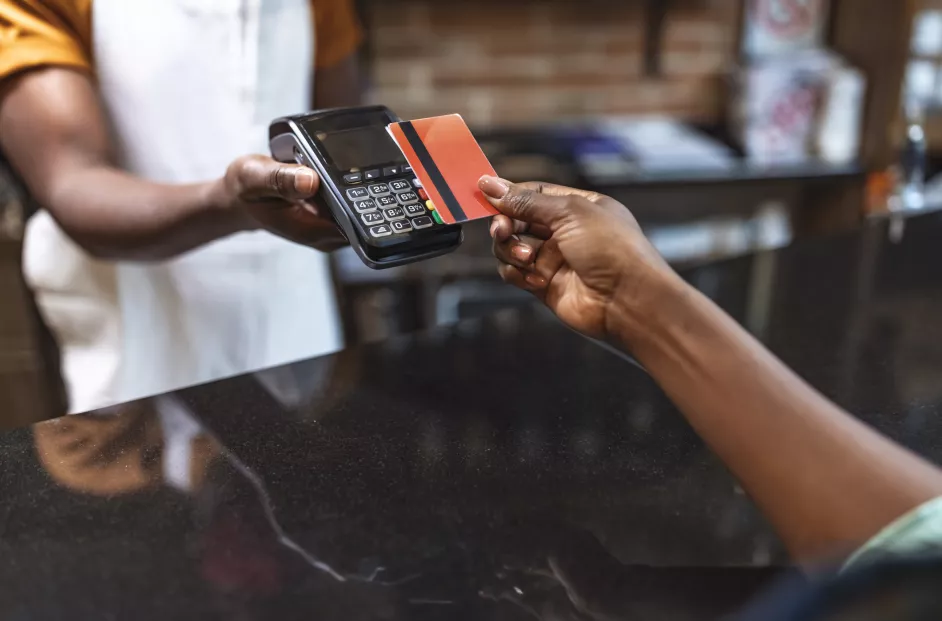Study Finds Gen Z Consumers Want Credit Perks but Leery of Debt
86% want cash back on everyday purchases, 78% afraid of debt, new research report from Bread by Alliance Data shows
COLUMBUS, Ohio, Oct. 20, 2021 /PRNewswire/ -- Alliance Data Systems Corporation (NYSE: ADS), a leading global provider of data-driven marketing, loyalty and payment solutions, today released findings from a national study that assesses payment wants, habits and attitudes of Gen Z consumers. The results show that while the majority want traditional credit card rewards and perks – 86% want cash back on everyday purchases; 84% want rewards that never expire; and 83% want to earn bonus rewards on certain spend categories – 78% admit they are also afraid of assuming debt.
Additional findings from the study include that many Gen Z shoppers want:
Credit – but are shut out: Nearly three in 10 (27%) Gen Zers claim they were turned down when applying for their first credit card – a rate that is two-times higher than any other generation.
A blend of traditional and digital choices: While cash and debit cards are the top payment types across all consumers, Gen Z also welcomes non-traditional digital payment options. The majority (53%) use person-to-person payment apps (more than any other generation), half (50%) use PayPal, and one in four (25%) would consider using cryptocurrency.
Purchase-based payment flexibility: Payment use among Gen Z is influenced by the purchase at hand. Looking at purchases valued between $30 and $150, credit cards are preferred by more than one in three (36%) Gen Z shoppers, while one in 10 say they would use buy now, pay later for a $500 purchase.
End-to-end control: When asked about features they would like to see in their payment solutions, nearly eight in 10 (79%) want to manage all of their accounts in one place, and digitally pay from whichever account they choose. More than half (59%) want the ability to schedule all of their split payments on a single day of their choosing.
Secure experiences: The study found that security is more important to Gen Z than any other generation. Nearly nine in 10 (86%) want protection from fraudulent websites, over eight in 10 (83%) want the ability to lock their account if they expect fraud, and more than three in four (76%) want two-step authentication for the payment methods they use.
"Our study depicts a cautious, responsible and choice-driven Gen Z consumer – but one whose needs are not fully being met by traditional credit and other payment options," said Val Greer, EVP and chief commercial officer, Alliance Data. "With $143 billion in buying power, retailers can open the door to this group which in 10 years is projected to have more buying power than millennials and baby boomers combined, by diversifying payment choice that includes tech-driven, clear-termed financing like buy now, pay later, that eases debt fears and gives control over cash flow."
Study Methodology
A sample of 2,515 U.S. consumers participated in the Next-Gen Impact study through an online quantitative survey that took place from August 6-12, 2021. Additionally, qualitative feedback was gathered from a total of 22 U.S. consumers, ages 16-24 in an online discussion board conducted on July 15 and 16, 2021.
"Our study depicts a cautious, responsible and choice-driven Gen Z consumer – but one whose needs are not fully being met by traditional credit and other payment options. With $143 billion in buying power, retailers can open the door to this group which in 10 years is projected to have more buying power than millennials and baby boomers combined, by diversifying payment choice that includes tech-driven, clear-termed financing like buy now, pay later, that eases debt fears and gives control over cash flow."
Val Greer, EVP and chief commercial officer, Alliance Data
Study Methodology
A sample of 2,515 U.S. consumers participated in the Next-Gen Impact study through an online quantitative survey that took place from August 6-12, 2021. Additionally, qualitative feedback was gathered from a total of 22 U.S. consumers, ages 16-24 in an online discussion board conducted on July 15 and 16, 2021.
About Bread Financial®
Bread Financial® (NYSE: BFH) is a tech-forward financial services company that provides simple, personalized payment, lending and saving solutions to millions of U.S. consumers. Our payment solutions, including Bread Financial general purpose credit cards and savings products, empower our customers and their passions for a better life. Additionally, we deliver growth for some of the most recognized brands in travel & entertainment, health & beauty, jewelry and specialty apparel through our private label and co-brand credit cards and pay-over-time products providing choice and value to our shared customers.
Bread Financial proudly marks 30 years of success in 2026. To learn more about our global associates, our performance and our sustainability progress, visit breadfinancial.com or follow us on Instagram and LinkedIn.
